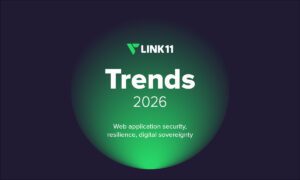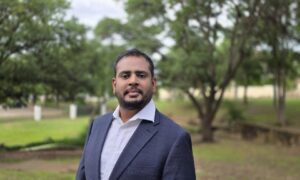DUBAI, UAE – October 22, 2025 — Day 4 of GITEX GLOBAL 2025 saw an unprecedented convergence of industry leaders and government officials at the Cyber Resilience track, where the critical debate over securing the digital backbone of nations took center stage.
In a session that drew a standing-room-only crowd of over 250 executives, CISOs, and policymakers, renowned expert Mansoor Ahmad Khan delivered a powerful address, repositioning the human element and strategic governance as the absolute core of national cyber defense.
During his speech, Mr. Khan, whose expertise is widely acknowledged in the regional cyber defense sphere as highlighted by his prominent position and association with key industry platforms, opened by stressing the profound shift in the threat landscape.
“The digital transformation of our critical infrastructure from power grids and water systems to finance and telecom means that a cyberattack is no longer just a data breach; it is a threat to life, public safety, and national stability,” he stated. He underscored that in the era of integrated digital economies, the consequences of a breach have moved from financial loss to systemic failure, making holistic cyber resilience an operational and geopolitical priority.
A central theme of the address was the re-evaluation of the human role in cybersecurity. While often cited as the weakest link, Mr. Khan passionately argued that people must be forged into the strongest line of defense.
- Cyber Culture Transformation: The focus must shift from annual compliance training to embedding a “security-first culture”. This involves practical, continuous, and role-specific education that instills a sense of shared ownership over the organization’s digital safety.
- Capacity Building: He called for a massive investment in developing local cyber talent, from technical experts who can hunt threats to business leaders who can effectively manage cyber risk as a P&L issue. “We need to build a pipeline of future-ready defenders,” he urged the audience.
- Bridging the IT/OT Divide: Mr. Khan particularly highlighted the challenges within Operational Technology (OT) environments. His strategy emphasized cross-disciplinary teams to securely manage the convergence of IT and OT networks that govern critical services.
Mr. Khan asserted that even the most advanced technology is useless without a comprehensive, adaptable regulatory framework. He detailed how Policy acts as the crucial blueprint for translating national defense strategy into actionable enterprise security.
- Proactive Regulation: He advocated for moving away from reactive, punitive regulatory models towards proactive, risk-based governance that mandates and incentivizes high-maturity security programs across critical sectors.
- Information Sharing Mandates: A key proposal was the establishment of mandatory, real-time threat intelligence sharing between government security agencies (like national CERTs) and private sector infrastructure operators. “Cyberattacks do not respect boundaries; our defenses cannot operate in silos,” he stressed.
- Supply Chain Security: Mr. Khan dedicated a significant portion to the systemic risk posed by the digital supply chain, recommending policy mechanisms to enforce vendor security standards and continuous auditing for third-party risk.
The final pillar of the presentation delved into the transformative, yet complex, role of Artificial Intelligence. Mr. Khan reframed AI not merely as an automated security tool, but as the essential enabler for predictive cyber resilience.
- Intelligence Over Automation: He championed the use of AI for anticipatory defense, capable of analyzing colossal data sets to spot subtle attack patterns and predict the next move of an adversary before a breach occurs.
- Responsible AI Governance: Acknowledging the risk of AI-powered attacks, he called for ethical guidelines and governance models that ensure the responsible and secure deployment of defensive AI systems within critical networks.
- The Velocity of Defense: Ultimately, Mr. Khan concluded, the sheer speed and scale of modern threats necessitate AI. “Human speed is no longer enough to defend against AI-powered threats. AI is required simply to keep pace, but policy and people must guide its deployment.”
The session closed with a vigorous Q&A, with attendees queuing to discuss the practical implementation of the three pillars, confirming that for the global leaders at GITEX GLOBAL 2025, cyber resilience is now the bedrock of the intelligent economy. The overwhelming attendance affirmed that the debate on safeguarding critical infrastructure is one of the most pressing global challenges today.































